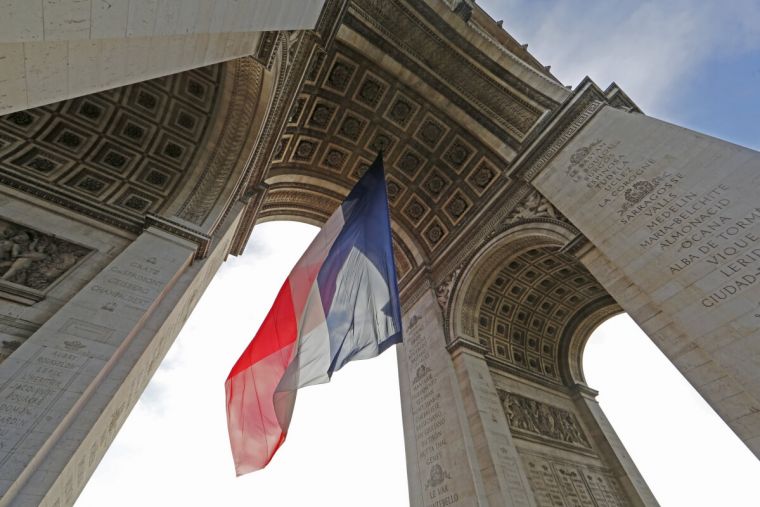Should Christians embrace a secular society?

France's much-vaunted principle of laïcité [secularism] is not fit for purpose in the modern world, according to one of its most senior ministers.
It is a core principle of French civil society: religion has no influence in policy-making. Religion and society don't mix.
Secularism is rooted in particularly French soil, in a battle for influence between the Catholic Church and the secular authorities. This battle was decisively won by the state in 1905 with the passing of a law on the separation of the Church and the state. Secularism in France is not necessarily hostile to religion, but there has always been a strong anti-clericalist movement directed at Catholicism.
Now it's Muslims who are the target. Ostensibly in the sacred name of secularism, there are moves to exclude all consideration of religion from public life. One example of this is the school lunch controversy: in several towns, Muslim pupils who had previously been able to choose a non-pork option have been told, "It's pork or nothing."
It's against this background that the Minister of Education, Najat Vallaud-Belkacem, has said that young people need to know that "whatever their faith, they belong to this idea [of laïcité] and they're not excluded". She's called for the principle of secularism to be "reappropriated" after the Paris attacks and panic about Islamist extremism.
There is a sense in which France is having the same debate as every other European country – how far do you go in accommodating views and lifestyles that diverge from those of the majority? However, it's doing so with a potentially powerful weapon – laïcité – in the hands of people who want to divide, exclude and reject.
The situation in Britain is very different. With an established Church, the assumption is that religion is part of civil society, not set apart from it. Yes, the boundaries are – rightly – being tested, but the principle is that religion matters.
However, the French situation helps throw our own into sharper relief. Proponents of the sort of hard-edged secularism that tells Muslim children that it's "pork or nothing" for lunch are engaged in a winner-takes-all battle with religion that is the reverse of liberalism. They want to use the law to exclude religion.
That's a view that's found in the UK too. But it runs completely counter to our national values and to our national interests. Christians in the UK should be all in favour of secularism, as long as it's understood as being genuinely inclusive. We shouldn't be arguing for the privileging of one religion or one denomination above another (and we should admit that the establishment of the Church of England is a bit of an anomaly here, to put it no more strongly than that) but neither should we allow it to be assumed that the absence of religion from the public square is the most desirable end point.
Instead, we should aim for a state in which everyone, religious and non-religious, is able to practise their faith or lack of it and contribute the best they have to the common good. That means making every effort to accommodate people's theological quirks, even at the risk of a little public inconvenience.
This kind of "soft secularism" is good for atheists, good for believers and good for the country. One of the dangers the Church faces is that it will be eroded by the strident, Dawkinsite voices of those claiming that religion is bad, full stop. The other, rather more under our control, is that the sort of persecution narrative beloved by some sections of evangelicalism will dominate to such an extent that we claim too much, and start defending historic privilege as though we were defending the gospel itself. They're different things, and we will flourish best as Church and nation if we admit it.
Follow Mark Woods on Twitter: @RevMarkWoods











